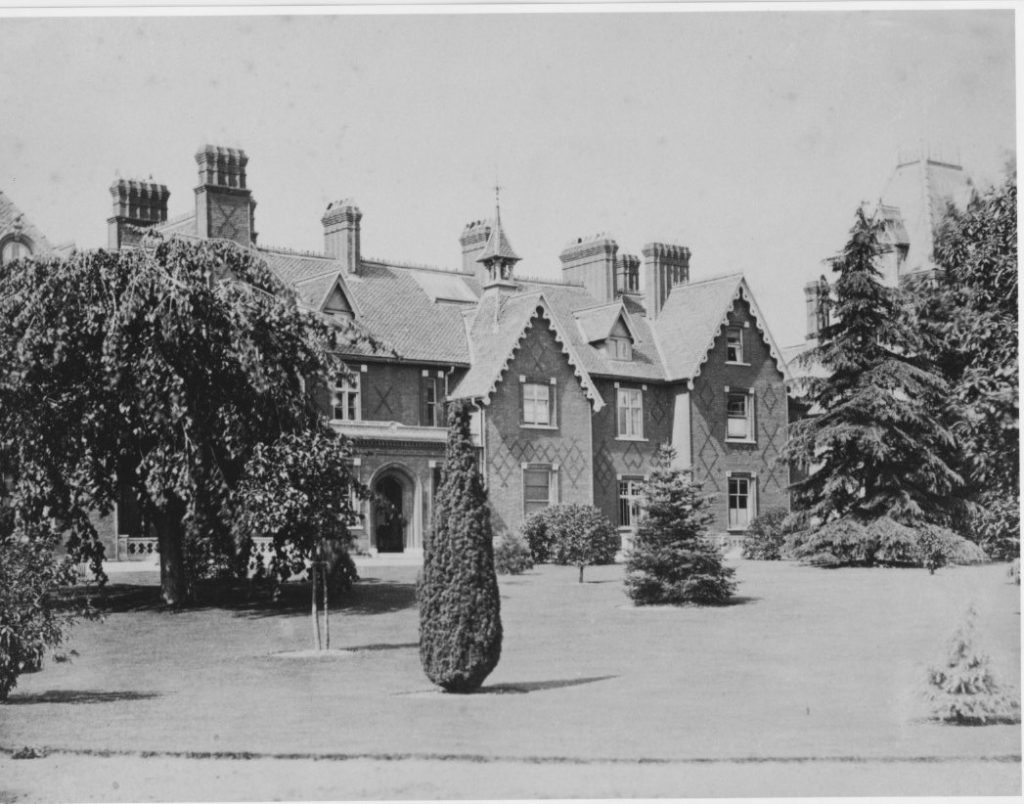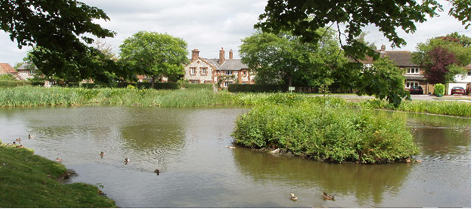
THE NEW owners of the former Penn School site in Church Road say their ambition is to convert the Victorian buildings into a boutique hotel and restaurant.
In a letter today to neighbours of Rayners, the name of the main house on the estate, they say: “Whilst we have yet to meet with the local planning authority, the intention is to turn the house into a boutique hotel and restaurant. If this is not achievable, other uses will need to be considered.”
The billionaire computer entrepreneur Peter Kelly, 63, who lives in Manor Road, Hazlemere is believed to be the principal purchaser. The deal was settled by sealed bids on 13 July.
The letter, which states the site is now “privately owned by local residents” says: “The house and grounds, which are in a very poor state of repair, will, over time, be restored to their former glory.”
It adds: “Since the sale has only just completed, we are at a very early stage. But as proposals emerge we will consult with you and other residents as part of the planning process. “
“Any proposals will take account of the building’s listed status and the need to preserve this magnificent estate.”
The letter is signed by “the Rayners team”.
Urgent tree work needed
The sale is the latest chapter in an uncertain story for the 19 acre site in the centre of Penn. Six years ago the school for children with hearing and communication difficulties went into administration and closed.
The Department for Education (DfE) paid £11.5m – nearly double the expected price – for the site in 2017 hoping that someone would revive it as a free school.
Last year though they threw in the towel and put the estate back on the market again.
Many local people felt it would go for housing development but there are considerable restrictions on the site which is within the Chilterns Area of Outstanding Natural Beauty, the Green Belt and the Penn and Tylers Green Conservation Area.
Furthermore, thanks to the efforts of local historian Miles Green, the main buildings were given Grade 2 listed building status by Historic England last year.
In their letter to neighbours the new owners say: “The DfE had undertaken minimal grounds maintenance (other than some tree safety work) and that is something that we are looking to rectify immediately.
“We are aware of the site’s overall TPO (Tree Preservation Orders) and are in touch with the council’s tree officers to discuss reducing the trees on the boundary that overhang neighbouring properties.”
The letter adds: “We will get a website set up as soon as possible to keep you informed of any plans and developments and we are actively recruiting a management team …that you will be able to meet.
“In the meantime there will be little change to the estate with the gardeners working as usual. When we took over the house and grounds a film company were working on site and it is likely that temporary use for filming will continue on and off this year. 24/7 security measures will remain in place.”
Rayners history

Rayners was built in 1847 for Sir Philip Rose, a successful London lawyer who was the solicitor and friend of Benjamin Disraeli who lived across the valley at Hughenden Manor. Disraeli was a frequent visitor and the obelisk in the grounds, which is now listed, is dedicated to him.
After Disraeli’s death in 1881 Queen Victoria visited Rayners as part of her mourning. She wanted to retrace her favourite prime minister’s final journey.
The estate became one of the biggest in the area, stretching down to the A40 London Road, and it employed many people from Tylers Green, a village which grew greatly during Sir Philip’s tenure. He set up the Hospital for Consumption and Diseases of the Chest (now the Royal Brompton Hospital) after he suffered consumption (tuberculosis) as a young man. Locally, he funded the building of St Margaret’s Church, Tylers Green even though he was a Roman Catholic.
When his son, also Philip, inherited after his father’s death in 1883 Rayners became a centre of social activity and a classic Victorian country house. The gardens were magnificent and the gardener’s bothy and accompanying trellis – now also listed – were widely visited.
Nearly everyone in Tylers Green attended Rayners to celebrate the end of the First World War when Sir Philip organised a grand firework display. However tragedies in the war had devastated the family and shortly after the second Sir Philip’s death in 1919 and facing heavy costs, the estate was broken up and sold.
In 1922 the London County Council bought Rayners and its immediate grounds and converted the building into a boarding school to educate deaf children in the capital.

